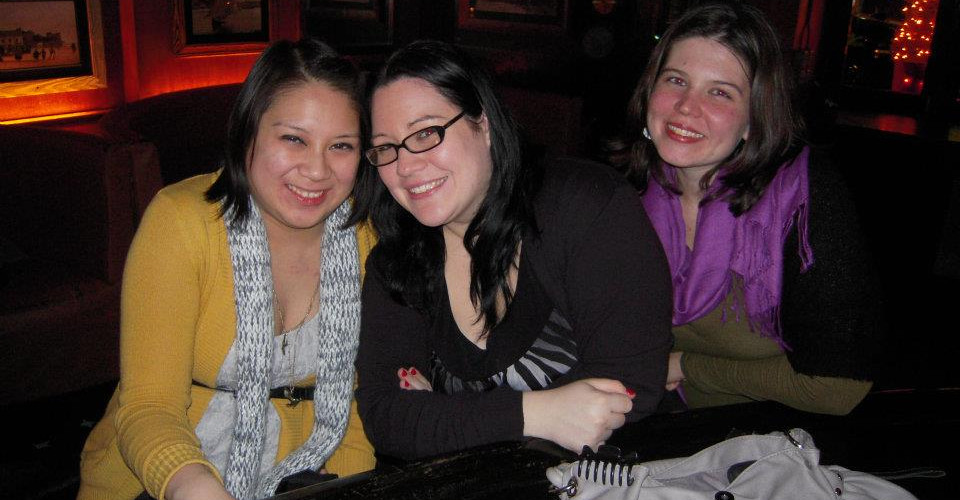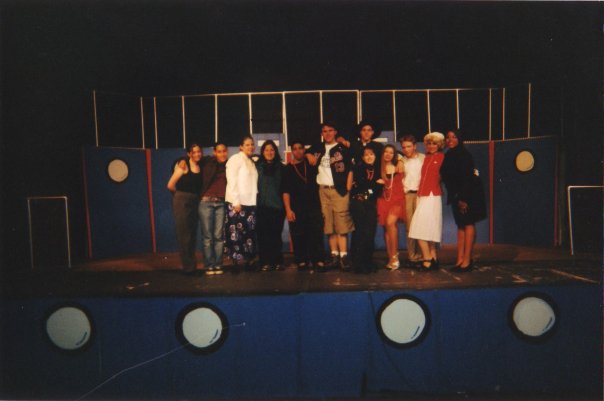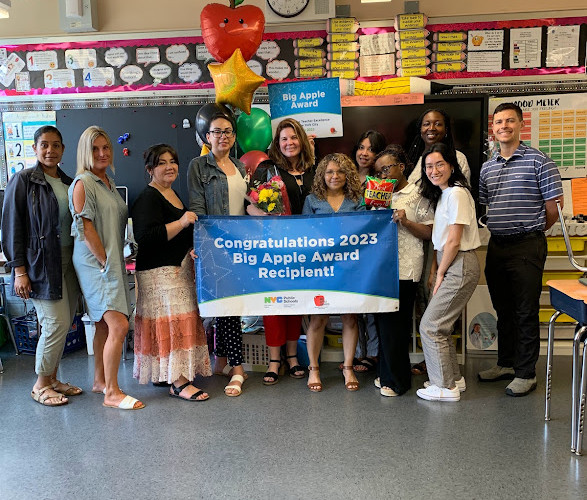Walking In My Why: Belonging, Community, Growth Mindset & Strength-Based Learning
- Christina Mesk
- Oct 8, 2023
- 9 min read
Updated: Dec 30, 2024

I did not have a name for my neurological condition at six years old. I don't remember when my hands began "shaking".
It's quite possible that I have always had tremors in my hands.
However, I do remember the moment when I first felt different from the other children around me.
I was in first grade...
and it was a teacher who made me feel that way.
I remember that I had been absent from school for a few days due to a case of strep throat. When I came back to school my teacher asked me to come up to her desk at some point midmorning. She looked at my trembling hands and she asked me why my hands were shaking. I don't remember what I said, but I know that my answer seemed to make her very unhappy. She walked to the classroom phone. I don't know who she called, but I remember that moments later I was sitting in the main office waiting for my mother. I can recall my teacher explaining to me that I had to wait in the main office because I could be contagious and she didn't want the other children to get sick.
I remember looking at my hands and seeing those tremors for the first time. I felt awful sitting in the office by myself. It was the first time someone had made me feel like I did not belong.
I do not have fond memories of the rest of first grade. I'm sure my mother took me back to the pediatrician and got another note indicating that it was okay for me to return to school. My mother is a very proactive person and believes in the power of documentation in the same way she believes in the power of prayer. However, for the remainder of that year, it felt like my teacher was always looking at me.
When she noticed that I was struggling with letter formation on tiny workbook lines, she forced me to write with these big, fat, red pencils instead of the regular pencils my classmates were using. They hurt my hands, but she still required me to use them. Simultaneously, she complained that when I used those big, red, fat pencils, I didn't write with enough pressure and that the writing was too light. She couldn't read my work. I remember that I sat at the table closest to the classroom door and that it always took me extra time to complete my work. The meeting area was way in the back of the classroom. I don't have many memories of being at that meeting area. I remember often sitting at that front table by myself finishing my work. I remember liking my seat because it meant that I was closer to escaping and far away from my teacher's eyes.
I have a neurological condition called Essential Tremors. I have learned over time that medical professionals use the word "Essential" to describe my tremor because it is not caused by any other diseases. My neurologist called them "Benign Essential Tremors" when I was first diagnosed at 16 years old, but most people in the medical field have dropped the word "Benign" within the last 20 years. I'm not sure why "Benign" was dropped from the name, but I imagine it is because there are many social impacts that people with Essential Tremors have to live with on a daily basis. At their worst, these tremors feel anything but "benign." Essential Tremors are different from the tremors associated with Parkinson's Disease and as alone as I felt in first grade, I have learned that almost 10 million Americans share my diagnosis. Most people with Essential Tremors don't start "shaking" until around the age of 40, but there is a minority of us who have lived with tremors from childhood.
As an educator, I can look back at my first grade teacher with some empathy. As an adult, I know that my tremors make other people very uncomfortable when they are at their worst. On some level she must have had genuine concern for my health and wellbeing, considering I had been absent for several days. However, the way she made me feel that day and for the remainder of the school year will live with me for the rest of my life. As much as my tremors are part of my identity, so is that memory. That awful feeling of being alone and abandoned in the school office has shaped who I am as a special educator.
At a recent school Think Tank meeting, I participated in a protocol called, "Walking in My Why." We were asked to find the story of "why we are educators" and to share that story in small groups. We had about three minutes to gather our thoughts and about three minutes to share within small groups. This protocol is meant to help teams develop a shared "why" prior to engaging in inquiry work. This was a very meaningful protocol and really helped our team to bond. However, it was very difficult for me to share my "why" with my colleagues. I didn't expect my voice to crack or to be close to tears as I spoke about my experience as a first grader. I have shared this story before, but sharing it within this context was almost like reliving it. The timing of the protocol and my own sudden explosion of emotions made it difficult for me to really explore my "why" with depth. It is my hope that sharing my "why" here will be beneficial to myself and others. My "why" is rooted in community, belonging, growth mindset and seeing people for their strengths; not their deficits.
When I was in elementary school you knew how smart you were by your classroom number and everyone understood how the system worked. I was in 103 in first grade, but when I was promoted to second grade, I was put in 204. I was moved to a "less smarter" class and it was probably due to my handwriting or the way my first grade teacher perceived me. I must have done better in second grade or maybe had a more compassionate teacher because in third grade I was put in 303. I recall that third grade was very difficult because that was the year you learned cursive and essay writing. I had no patience for cursive instruction and I was absolutely sure that my third grade teacher did not like me. At that point though, I was very accustomed to teachers only seeing my struggles and I did not really care if anyone could read my cursive. However, my third grade teacher must have seen strengths that my other teachers missed because when I was promoted to fourth grade she moved me to the "gifted class." This "promotion" sat very uncomfortably on me and I was sure that it was a genuine mistake that I was part of the gifted program for the rest of elementary school.
In middle school, I was bussed to another school district and my tremors were a hot topic once again - not for my teachers, but for my peers. It was really difficult for me to find friends who didn't belittle me because of my tremors, my nerdiness or my introverted tendencies. I was an easy target for bullying. However, in seventh grade I found a friend group that truly accepted me for my abilities and not what I struggled with.
We were a band of misfits and we stuck together. We each had different interests and wildly different taste in music, but we always supported each other. Again, I didn't have a word yet for my condition, but my friends just accepted that "Stina shakes." They asked me questions with kindness, accepted my responses and life went on.
They were the first group of friends who showed me what belonging and community really meant. I felt safe when we were together.
One of my favorite memories was sitting in the middle school auditorium with them for a mandatory assembly about the winter fundraisers. The school had held a month of varying marathons to raise money for trips. We really weren't paying attention to what was happening on stage, so it was quite jarring when my name was announced as the winner of the reading marathon. I had only participated because I was already reading a lot of books. It was an easy fundraiser to participate in because I already loved the feeling of learning through literature.
I remember that I didn't want to get up and walk to the stage at the front of the auditorium when my name was called. We were sitting all the way in the back of this huge auditorium. My friend Melissa turned around and said, "Christina Mesk? Christina Mesk? That's you, Stina Mesk! Go! Get up there!"
They were so excited for me and that support meant more than anything else. In hindsight, I can also see that this was one of the very first moments in my life when both my school community and my peers recognized me for my strengths and interests.
In high school, I actively sought community and belonging. I found a place for myself in the Drama Club and the Volleyball Team. I was excelling academically, but at 16 I felt like my family pulled the rug out from under me.
At the urging of my grandfather, my family took me to a neurologist because my grandfather felt that my tremors were getting worse and that my parents needed to take some sort of action. I was so angry. I didn't want to see a doctor. I didn't want to be reminded again that I was different. I was incredibly rude to my parents and all the doctors. Although I finally had a name for my condition, it felt like everyone's eyes were on my hands again. It felt like everyone was looking at me for my deficits instead of what I was capable of doing. As an adult, I know that my grandfather and parents had no ill intentions and that their insistence to seek medical help came from a place of love. However, it didn't feel like that at the time. It felt like someone was trying to exclude me all over again.
As an educator, it has been a priority that my classroom be a place where all students find community and feel like they belong.
I never want my students to feel the way I felt way back in first grade - isolated, abandoned and only known for their deficits.
I want my students to be able to name their strengths and interests confidently. I want to co-construct a community with my students and their families that celebrates those strengths and interests:
"My son loves NYC subways and he always gives the best directions without even looking at the map." - parent, 2023
"I love ice cream trucks and I want to drive one when I grow up." - student, 2023
"I'm really great at video games and I am curious about how video games are made." - student, 2023
I want our classroom to feel safe. It's only when students feel safe that they take big risks and celebrate their mistakes as opportunities for learning. Safe classrooms are where growth mindset flourishes.
I will always find ways to leverage student strength and interest in lesson planning and in our classroom culture. This could be as simple as incorporating gamification into math centers and as complicated as finding resources for students about NYC subways, video games and ice cream trucks for our writing unit on inventors and inventions. I want to provide the same opportunities for families. This again could be as simple as inviting families to contribute food for our International Night and as complicated as inviting parents to speak about their jobs at our 5th Grade Career Day. Goal setting is much easier when we build from assets instead of deficits. If we only focus on all the reasons students are behind or different from their peers, it's so easy for both students and teachers to feel overwhelmed and give up.
Why am I an educator? I am not here to fix my students or their families. No one in my classroom is broken.
Why am I an educator? I am not here to give knowledge, because quite frankly there is whole lot I don't know yet.
Why am I an educator? I am an educator because I want to facilitate an environment in which all my students and their families feel safe.
Why am I an educator? I want to co-construct a classroom community in which all my students and their families feel like they belong.
Much like my students, I have a diagnosis or classification that will always be part of my identity. As I matured, I was able to move past my anger at that diagnosis and the people who unknowingly hurt me along the way. My evolving community of friends, family members and colleagues have provided me with a sense of belonging by celebrating my strengths and interests. They have also encouraged me to take big risks and pushed me outside of my comfort zone in all areas of my life.
Their support is the reason I can look back at the actions of my first grade teacher and my family with some grace and empathy. Teachers and parents are humans who make mistakes.
I can't go back and change the past and I will most certainly make mistakes going forwards.
Now that I have "found my why" as educator, the next step is to intentionally "live in my why."
And when I unintentionally make a mistake that contradicts "my why..."
because I will...
because I am human...
I will be sure to genuinely apologize, find the learning in that moment and move forwards.
Because that is what I want my students to be able to do...
and that is what happens in a community where everyone belongs, strengths are celebrated and growth mindset is valued.























